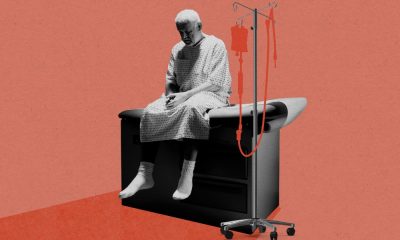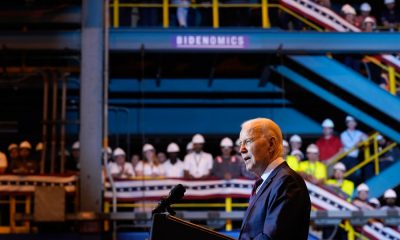A U.K. man, who was diagnosed with a rare type of cancer, was given 12 months to live. However, participating in an immunotherapy drug trial turned his life around.
Robert Glynn, 51, a welder from Worsley in Greater Manchester, had intrahepatic bile duct cancer. Glynn was diagnosed with the aggressive form of cancer a day before his 49th birthday in June 2020. Prior to that, Glynn has been experiencing severe pain in his shoulder, which made it difficult for him to sleep, according to The Guardian.
Unfortunately, at the time of the diagnosis, cancer had spread to his adrenal gland and liver. The big size of the tumors made surgery impossible. It was classed as stage 4.
“I asked my consultant to be honest and tell me how long I’d got if I carried on as I was, and she said 12 months,” Glynn said, as per the outlet.
Glynn was referred to an immunotherapy trial run by the Christie NHS foundation trust in Manchester. Here, Glynn was found to be an ideal candidate for a clinical trial of an immunotherapy drug already approved for use in the lung, kidney, and esophageal cancer.
However, the drug’s name was not disclosed due to the experimental nature of the trial.
“I wouldn’t be here today without the trial. When I was given the option to take part in research, I jumped at the chance. You do anything you can to extend your life,” Glynn said, reported LadBible.
The results from the trial were nothing short of a miracle. Following treatment, the tumor in the liver reduced in size from 12 cm to 2.6 cm, while his adrenal gland tumor became 4.1 cm in size from 7 cm. The reduced tumors allowed Glynn to undergo surgery in April this year to remove them.
Incredibly, the tissues that were removed were made up of dead cells, meaning the drug has destroyed all the cancer cells.
“They didn’t find any active cancer cells at all. They tested the tumors twice because they couldn’t quite believe it,” said Glynn.
“One of the nurses at the Christie said it was a miracle. I don’t like that word – I’m just an ordinary bloke – but it’s definitely remarkable. Without the trial I wouldn’t be here,” he added.
Glynn responded so well to the treatment because he had a high number of genetic mutations.
“Most patients with this diagnosis do not have as many mutations in their cancer cells so the treatment won’t be as effective, but it does highlight the importance of personalized medicine,” Prof Juan Valle, a consultant oncologist at the Christie and a world-leading expert in biliary tract cancer, said.
“The results of this research and another larger study are keenly anticipated by colleagues worldwide as it could lead to a change in how we treat patients like Robert in the future,” Valle added.
Glynn has not needed any more treatment and has become cancer-free as per his quarterly scans.
“I feel very lucky as I had cancer for two years and had no idea. So getting the all-clear was overwhelming,” Glynn said.
















